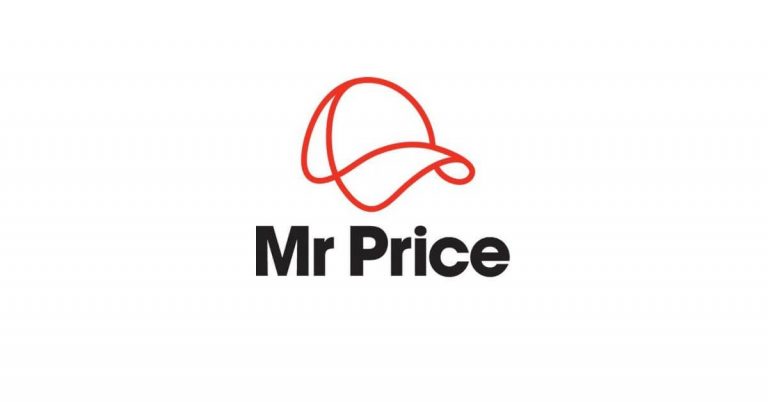How TVET Colleges Will Benefit From The Education Budget – A Detailed Guide
As the South African government continues to prioritize education as a fundamental pillar for national development, the 2025 national education budget has raised significant expectations, especially regarding the future of Technical and Vocational Education and Training (TVET) colleges. TVET institutions play a crucial role in South Africa’s educational landscape by equipping young people with the practical skills needed to thrive in the workforce. With high unemployment rates among youth in the country, TVET colleges have become a focal point for bridging the skills gap, and the government’s recent budget allocations are poised to address this need.
In this article, we will explore how TVET colleges in South Africa stand to benefit from the 2025 education budget, the specific initiatives that will be funded, and what this means for the future of technical education and skills development in the country.
1. The Importance of TVET Colleges in South Africa
TVET colleges are integral to South Africa’s education system because they provide students with hands-on, practical skills that directly translate into employment opportunities. These colleges offer a wide range of programs, including courses in engineering, hospitality, construction, IT, and business management. By focusing on skills-based learning, TVET colleges cater to the needs of industries looking for qualified workers.
Given the economic challenges South Africa faces, including high youth unemployment and a growing demand for skilled labor, TVET colleges provide a much-needed solution. The National Development Plan (NDP) has long recognized the importance of TVET institutions in producing a skilled workforce capable of driving economic growth.
However, these colleges have often struggled with inadequate funding, outdated equipment, insufficient infrastructure, and overcrowded classrooms. As a result, many students have faced barriers in accessing quality education and training, limiting their future job prospects.
Key Benefits of TVET Colleges:
- Youth Employment: TVET colleges help young people gain the skills required by industries, which in turn increases their chances of securing jobs.
- Workforce Readiness: TVET graduates are more likely to be job-ready due to the practical nature of their training.
- Economic Growth: A skilled workforce is essential for boosting economic growth, especially in sectors like construction, manufacturing, and technology.
2. The 2025 Education Budget: A Game Changer for TVET Colleges
The 2025 education budget has allocated significant funds to improve the quality and accessibility of education in South Africa, with TVET colleges being one of the major beneficiaries. A major part of this funding will go towards enhancing the infrastructure, resources, and programs at these institutions.
Key Budget Allocations for TVET Colleges:
The government has pledged to increase the funding for TVET colleges by 12% in the 2025 fiscal year. This is in line with the National Treasury’s commitment to improving vocational and technical education. Here are some of the areas where TVET colleges are set to benefit:
1. Infrastructure Development and Modernization
- Upgrading Campus Facilities: A substantial portion of the 2025 budget will go towards upgrading the infrastructure of TVET colleges. This includes building new classrooms, labs, and workshops, as well as refurbishing existing facilities to meet modern standards.
- New Equipment and Technology: The budget will also focus on providing TVET colleges with the latest technology and training equipment. This includes upgrading machinery for engineering programs, computers for IT courses, and more resources for agricultural and culinary training.
This infrastructure overhaul will ensure that students receive practical training on state-of-the-art equipment, improving their employability by equipping them with the skills required by industry leaders.
2. Expansion of Bursaries and Financial Aid
- Increased Funding for TVET Bursaries: One of the most significant barriers to accessing education at TVET colleges has been the cost. The 2025 budget aims to address this by increasing funding for student bursaries and expanding financial assistance programs.
- Support for Disadvantaged Students: A greater portion of the financial aid will be earmarked for students from underprivileged backgrounds, ensuring that cost does not become a barrier to their education.
This initiative will not only make TVET education more accessible but will also ensure that students can complete their programs without the financial burden that often leads to dropouts.
3. Teacher Training and Development
- Investment in Teacher Training: A portion of the budget will also be allocated to improving the quality of teaching at TVET colleges. This will include professional development programs for TVET lecturers, equipping them with the latest teaching methods and industry-relevant knowledge.
- Industry Collaboration: The budget will support partnerships between TVET colleges and industries, allowing lecturers to gain practical, real-world experience in the fields they teach.
Having qualified, industry-experienced instructors is essential for ensuring that TVET students receive the most relevant and up-to-date training.
4. Skills Development and Curriculum Enhancement
- Curriculum Revitalization: The 2025 budget will also focus on updating and modernizing the TVET curriculum to align more closely with the needs of the South African economy. New courses will be developed to address emerging industries like green energy, artificial intelligence, and advanced manufacturing.
- Industry-Specific Training Programs: The government has identified key sectors where South Africa needs skilled workers, such as agriculture, construction, technology, and manufacturing. The budget will fund targeted programs in these fields to ensure that students are equipped with specialized skills that will make them more competitive in the job market.
5. Strengthening Industry-College Partnerships
- Workplace Learning and Internships: The government aims to boost the practical learning experience for TVET students by creating more partnerships with industry players. This will include providing opportunities for students to engage in internships and work placements, giving them real-world experience before they graduate.
These partnerships are expected to improve the employability of TVET graduates by ensuring that they not only receive theoretical knowledge but also have the hands-on experience employers are looking for.
3. Impact of the 2025 Education Budget on TVET Students
The budget’s increased focus on TVET colleges will have a direct and positive impact on the students who rely on these institutions to prepare them for the workforce. Here are some of the expected benefits for students:
1. Improved Access to Quality Education
- Students will benefit from modernized facilities and better resources that will make their learning experience more relevant to today’s job market.
- Increased financial aid and bursaries will make TVET education more accessible to students from disadvantaged backgrounds, reducing the financial barriers that often prevent them from enrolling.
2. Better Employment Opportunities
- Graduates from TVET colleges will be better equipped to find employment thanks to the enhanced industry-aligned curricula and increased exposure to hands-on learning opportunities.
- The focus on industries like construction, IT, agriculture, and engineering means that students will be trained in areas with strong demand for skilled workers.
3. Enhanced Skills Development
- With the expansion of specialized courses and improved teaching quality, students will gain deeper expertise in their chosen fields. This will lead to a more skilled workforce and increase graduates’ chances of securing well-paying jobs.
4. Increased Workplace Readiness
- By promoting internships and partnerships with industry players, students will have the opportunity to gain valuable work experience during their studies, which will make them more competitive when entering the job market.
4. Challenges and Considerations
While the 2025 education budget is a promising development for TVET colleges, several challenges remain that may affect the full realization of its benefits. These include:
- Implementation Delays: Given the large scope of the funding and the need for infrastructure development, there may be delays in the rollout of some initiatives.
- Sustainability: Ensuring that the improvements to TVET colleges are sustainable in the long term will require ongoing investment and commitment from both the government and private sector.
- Adapting to Fast-Changing Industries: As industries evolve and new technologies emerge, TVET colleges must continuously update their curricula and training programs to remain relevant.
The 2025 education budget represents a significant step forward for TVET colleges in South Africa, providing crucial funding to improve infrastructure, curriculum, teacher training, and student support. This initiative promises to address the skills gap in the workforce, support economic growth, and enhance the employability of young South Africans.
As the government moves forward with implementing these budget allocations, it is essential to ensure that these investments translate into meaningful change for students and the broader South African economy. By strengthening TVET institutions, the country can empower its youth, reduce unemployment, and build a more prosperous future.



